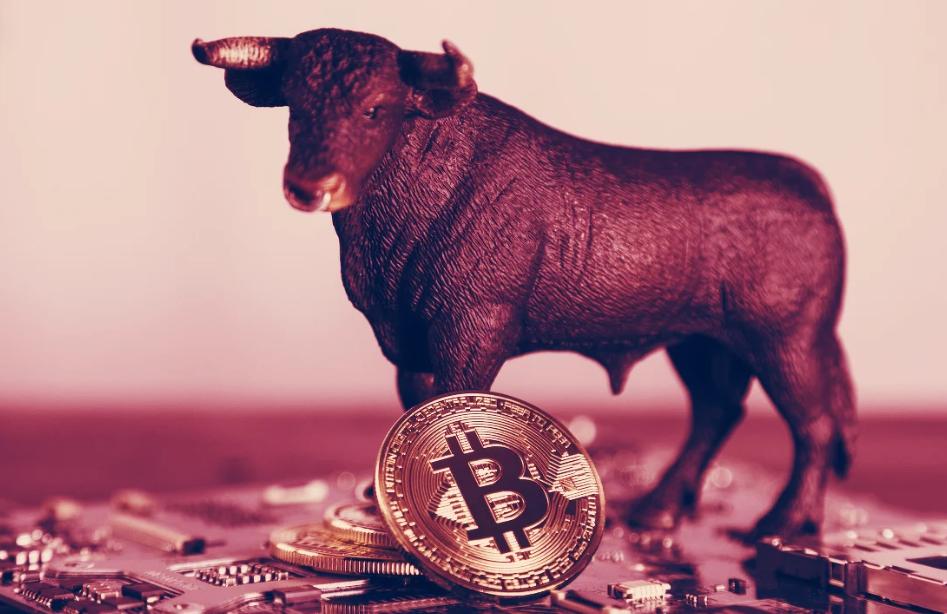The "Crypto President" team of "Playing with Bitcoin" is growing, is a new global consensus coming?
Author: Huo Huo, Baihua Blockchain

The year 2024 is a super election year, with dozens of countries and regions around the world holding key elections, involving a total population of over 4 billion, among which the U.S. election is undoubtedly the biggest focus. However, unlike in the past, the topic of cryptocurrency ranks third in popularity among all super political action committees participating in the 2024 U.S. election.
I still remember that four years ago, it was rare for presidential candidates to discuss Bitcoin during their campaigns. Three years ago, when El Salvador became the first country to adopt Bitcoin as legal tender, many were still on the sidelines. However, during last year's primaries, the situation began to change, and the era of cryptocurrency being politically marginalized seems to be gone for good.
On one hand, former President Trump and current President Biden are making various efforts to win the support of crypto voters; on the other hand, many crypto companies plan to inject large amounts of cash into the 2024 U.S. presidential election, and there are already signs that this funding is helping the crypto industry gain more support in Washington.
Additionally, among the 12 primary candidates participating in the 2024 U.S. presidential election, five have explicitly stated their support for Bitcoin and the crypto industry. By the end of December 2023, Argentine President Javier Milei was elected, reportedly advocating for policies including dollarization, ending currency controls, closing the central bank, significantly cutting national spending, and actively supporting Bitcoin…
 Argentine President Javier Milei
Argentine President Javier Milei
So which presidents and regions around the world have explicitly expressed support for Bitcoin?
El Salvador: Nayib Bukele
In 2021, El Salvador became the first country in the world to officially recognize Bitcoin as legal tender. In 2021, El Salvador designated Bitcoin as legal tender and simultaneously launched a government-designed digital wallet application, Chivo Wallet, allowing users to make payments in either USD or Bitcoin. At that time, the trading price of Bitcoin was around $36,000.
This decision was facilitated by El Salvador's President Nayib Bukele. On one hand, El Salvador is an agriculture-driven economy that heavily relies on remittances as a significant component of its GDP; on the other hand, Bukele, after taking office, was eager to lead El Salvador towards prosperity, and his party holds 64 out of 84 seats, giving him absolute decision-making power.
In November 2022, when the price of Bitcoin fell to about $16,000, Bukele announced that El Salvador would begin purchasing one Bitcoin daily.
In March 2024, foreign media reported that Bukele stated the country's Bitcoin holdings might exceed public estimates and tweeted that El Salvador is earning Bitcoin-related income through its passport program, converting Bitcoin into USD for local businesses, mining, and government services, claiming that the Bitcoin investment portfolio is valued at nearly $205 million, having profited $83 million from its Bitcoin investment strategy.

Shortly thereafter, on March 14, Bukele tweeted again that the country is preparing to store "a large portion" of its Bitcoin assets in "cold wallets" and other related offline devices.
However, a study published in December 2023 by Science indicated that since adopting Bitcoin as legal tender, it has not been widely used in El Salvador, and "the application scenarios for digital payments are scarce and concentrated."
U.S. Presidents (Former Presidents, Candidates)
At the end of 2024, the U.S. will hold its next presidential election. Although polls will not start until November 5, 2024, dozens of U.S. politicians have already expressed their intention to compete with current Democratic President Joe Biden.
Among the 12 candidates participating in the 2024 U.S. presidential election, five have explicitly stated their support for Bitcoin and crypto assets, including four Republican candidates: Donald Trump, Ron DeSantis, Francis Suarez, Vivek Ramaswamy, and Democratic candidate Robert F. Kennedy Jr. According to data from FiveThirtyEight at the time, Donald Trump had the highest support rate among declared Republican candidates at 54%, followed by Ron DeSantis at 17%.

As expected, Trump and Biden have ignited the "crypto election" battle.
It is well known that the current Biden administration (Democratic Party) seems to have taken an anti-crypto stance, so if a pro-crypto candidate is elected, it could have a significant impact on the next crypto bull market. From the current party attitudes towards crypto, the majority of Democrats led by Biden tend to be cautious about crypto, especially after the collapse of FTX, which has further solidified their direction towards strict regulation. In contrast, the majority of Republicans led by Trump have rarely shown a more inclusive attitude towards crypto, perhaps to attract votes by demonstrating differing political views.
As Trump continues to advocate for a "crypto-friendly" stance and support for technological innovation, even opening a crypto donation website in May, Biden and other Democrats have also begun to shift, announcing the recruitment of a Meme manager.
While crypto may occupy a very small part of the entire U.S. election, this does not mean that crypto voters are unimportant; a small policy could significantly influence voter support rates.
1) Donald John Trump
Although Trump publicly expressed a negative attitude towards crypto during his presidency (January 2017 - January 2021), calling crypto assets "thin air," he has been quite "honest" in his actions over the past two years, becoming one of the presidential candidates most adept at engaging with cryptocurrency.

His NFT project launched on December 16, 2022—the Trump Digital Trading Cards—sold out, generating a total revenue of $4.87 million. Additionally, according to a disclosure by the Washington non-profit organization Citizens for Responsibility and Ethics in Washington (CREW) on August 14, 2013, he reportedly holds nearly $2.8 million in crypto assets (ETH) in a wallet suspected to belong to him.

Currently, Trump leads other Republicans by a significant margin in polls; however, with more and more Republicans announcing their candidacy and Trump facing legal issues, it remains uncertain who will ultimately represent the Republican Party in the 2024 U.S. presidential election.
2) Ron DeSantis
On July 31, 2023, at a campaign event in New Hampshire, U.S. presidential candidate and Florida Governor Ron DeSantis addressed the Biden administration's ongoing crackdown on crypto assets and crypto institutions since 2023, stating:
"Once I am elected president, I will end Biden's war on Bitcoin and crypto."
"We will allow Americans to invest in Bitcoin and crypto assets; no one is forcing you, but if you want to buy (crypto assets), you can."

DeSantis also firmly opposes CBDCs (Central Bank Digital Currencies). He believes that unlike cryptocurrencies, CBDCs will massively transfer power from individual consumers to the central bank, enabling the federal government to control the flow of money.
DeSantis further stated, "If I am president, we will abolish CBDCs from day one."
3) Robert F. Kennedy Jr.
Another candidate investing in crypto assets is Democratic candidate Robert F. Kennedy Jr., who is from the famous political family—the Kennedy family, and is the nephew of former U.S. President John F. Kennedy.
On July 24, 2023, Kennedy participated in a Bitcoin conference held in Miami and announced that his campaign would be "the first presidential campaign in history to accept Bitcoin donations via the Lightning Network."
 Robert F. Kennedy speaking at the Bitcoin conference in Miami in 2023
Robert F. Kennedy speaking at the Bitcoin conference in Miami in 2023
On July 27, he confirmed on Twitter that he indeed holds Bitcoin and has purchased 2 Bitcoins for each of his 7 children. He emphasized that Bitcoin is an anti-inflationary currency, providing freedom for retail investors rather than holding a fiat currency dominated by the system. He hopes to exempt Bitcoin from capital gains tax.
Like DeSantis, Kennedy is quite optimistic about the future of Bitcoin and crypto, and he promised the public that if elected president, he would gradually back the U.S. dollar with Bitcoin. He explained that this would be a gradual process, starting on a very small scale, perhaps with only 1% of national debt backed by hard currency, gold, silver, platinum, or Bitcoin.
4) More
The other two presidential candidates, Vivek Ramaswamy and Francis Suarez, currently have a lower likelihood of becoming the 2024 U.S. president based on polls, but it is not impossible, and they are also supporters of Bitcoin.
However, unlike DeSantis, Vivek Ramaswamy has stated that he is a fan of Bitcoin but will not treat Bitcoin as a commodity to help stabilize the dollar: "I believe that for various reasons, Bitcoin does not yet meet the criteria for a commodity basket. Bitcoin may become part of the commodity basket at some point, but for some technical reasons, I will not include it today."
Presidential candidate and Miami Mayor Suarez, on the other hand, will accept Bitcoin for campaign donations. During his tenure as mayor, Suarez became known for advocating for cryptocurrencies. He vowed to make Miami a Bitcoin hub and personally accepted a Bitcoin salary as mayor. Suarez has also been deeply involved in the development of the crypto industry and believes that the U.S. needs a president who understands crypto assets and AI technology.
Argentine President: Javier Milei
Javier Milei is an Argentine economist, previously a member of the Argentine National Congress and a leader of the libertarian movement, who successfully won the presidential election in November 2023.
Famous American journalist Tucker Carlson interviewed Milei, which garnered over 421 million views on Twitter. One of the key points of the interview was the dollarization of the Argentine economy. In this proposal, Milei has consistently emphasized the importance of abolishing the Argentine central bank and discussed how Bitcoin could provide an opportunity for this process.

In his vision, after closing the central bank, Bitcoin would become the main remedy for Argentina's inflation. Before the presidential campaign, Milei appeared on several talk shows, often promoting the benefits of Bitcoin and crypto assets, claiming that "Bitcoin can eliminate central banks."
On November 20, 2023, possibly due to Milei's election, Bitcoin, which had been hovering around $30,000, surged past $37,000, with a 24-hour increase of 2.3%.
After his election, especially in recent weeks, contrary to some previous reports, Milei's government has not promoted a Bitcoin standard in Argentina. Many reports clarified that Javier Milei does not have actual supportive policies for crypto and stated that while Milei holds a positive attitude towards Bitcoin and criticizes the central bank, his main economic proposal is the dollarization of the Argentine economy, not adopting Bitcoin as legal tender. Milei's comments about returning currency to its original creators, namely the private sector, have been taken out of context, implying broader policy measures to adopt Bitcoin, but this was not what he proposed.
Is this a cautionary tale for the U.S. election and crypto development?
Mexican Presidential Candidate: Indira Kempis
Kempis is currently a senator in the 65th legislature of the Republic from the Citizens' Movement Party. In late August 2023, due to internal disputes regarding the party's future, she announced her intention to become Mexico's first female presidential candidate.
Kempis is well-known among Bitcoin and crypto asset advocates for her outspoken belief that early adoption of Bitcoin could bring opportunities to Mexico. Since taking office in 2018, this senator has encouraged the crypto economy over the past few years. According to Bitcoin Magazine, she has also pushed for Mexico to establish Bitcoin regulations similar to those of El Salvador.

In 2022, she proposed a bill to create a CBDC, and while she did not mention crypto in that bill, she suggested that the Mexican central bank be the sole issuer of digital pesos, making headlines.
However, after criticism from the crypto community regarding the introduction of CBDCs, Kempis amended the bill to include Bitcoin, hoping to make the first cryptocurrency Bitcoin the legal tender of Mexico.
The Mexican central bank has yet to provide an analysis of the CBDC bill, and lawmakers' reactions have been mixed. For example, some senators have expressed strong opposition, arguing that while Bitcoin has been legalized in El Salvador, Mexico "will not accept" Bitcoin as legal tender.
She has also actively participated in various crypto-related events, such as promoting the "My First Bitcoin" course certification in Nuevo León, where she was born in August 2023.

However, the Mexican presidential election began on June 2, 2024, and on June 3, Claudia Sheinbaum, the presidential candidate from the ruling National Regeneration Movement party, announced her victory in the presidential election in Mexico City, becoming the first female president in Mexican history, set to take office on October 1. However, her stance on crypto has not been disclosed much.
While this result is significant for advancing gender equality in Mexico, the current government is likely to continue its policies and strategies regarding crypto regulation, which is worth monitoring.
Current UK Prime Minister: Rishi Sunak
The new leader of the UK Conservative Party, Rishi Sunak, officially became Prime Minister of the UK on October 25, 2022.
During his tenure as Chancellor of the Exchequer, he actively promoted economic policies and financial legislation. Although there are no specific crypto events directly related to him, his policies and decisions have impacted the UK economy and financial sector.
In April 2021, while serving as Chancellor, Sunak proposed that the UK Treasury and the Bank of England explore the creation of a Central Bank Digital Currency (CBDC).
In April 2022, Sunak called for the recognition of stablecoins as a valid payment method.
In the months leading up to his election, he stated in response to a reporter's question that he preferred BAYC over Crypto Punks. Rather than choosing one or two cryptocurrencies, he favored a diversified portfolio of various cryptocurrencies. His long-standing and high level of attention to crypto is evident.
After taking office, Sunak began to push for a pound stablecoin, stating, "My vision is to make the UK a global center for crypto asset technology," subsequently bringing stablecoins under regulatory oversight and making cryptocurrencies one of the recognized payment methods.
Moreover, in April 2023, he proposed to make the UK a crypto-friendly tech hub and planned to launch an official UK NFT.
However, the UK general election will be held on July 4, 2024, a date that could lead to the ruling Conservative Party losing power. According to voting intention surveys, the Labour Party is currently expected to win the upcoming election, but they have not clarified their stance on the crypto industry and have remained silent on crypto legislation, although they have expressed a desire for the UK to become a tokenization center and supported the Bank of England's digital pound initiative.
Central African Republic President: Faustin-Archange Touadéra
The President of the Central African Republic is a staunch "believer" in Bitcoin, consistently supporting and promoting its adoption and application. In April 2022, he announced the adoption of Bitcoin as legal tender, allowing tax payments in crypto, and established a legal framework to regulate the use of cryptocurrencies, making the Central African Republic the second country after El Salvador to officially adopt Bitcoin as legal tender, and also the first in Africa to use Bitcoin as a payment currency.
In the same month, he pushed the National Assembly of the Central African Republic to pass a bill declaring Bitcoin as legal tender to aid the country's economic recovery and development.
In May, he launched the "Crypto Center" Project Sango to attract global crypto enthusiasts, planning to establish a crypto island and a digital wallet. He also stated that the Central African legislative body had passed the "Tokenization Act," approving the tokenization of land and natural resources. However, as the crypto bear market deepened, the development of this plan did not go smoothly.
But the Central African President stated, "If no one believes in Bitcoin, then we will issue our own national cryptocurrency."
In July of the same year, the Central African Republic launched the public sale of its national cryptocurrency, Sango Coin, positioning itself as a "crypto economic nation." Sango Coin is deployed on the Bitcoin sidechain, interacting with the Bitcoin main chain, allowing users to trade between Sango Coin and Bitcoin. The initial public sale price was $0.1, with a total supply of 21 billion coins, and the token sale was divided into 12 phases, with prices gradually increasing to a final price of $0.45. The Central African Republic also offered various incentives, such as purchasing and staking Sango Coin in exchange for citizenship, obtaining electronic residency, or acquiring land through staking Sango Coin.
However, two months after the public sale of Sango Coin, the Constitutional Court of the Central African Republic ruled that using tokens to purchase land and citizenship was unconstitutional. Additionally, the national assembly announced in March of this year that Bitcoin would be reclassified from legal tender to a benchmark cryptocurrency.
It can be said that although there have been many challenges, the Central African Republic is still exploring this path.
Japanese Prime Minister: Fumio Kishida
The Japanese government has a relatively open attitude towards crypto and is considered one of the leading markets for crypto assets globally, having implemented a series of regulations and measures to regulate and promote the development of cryptocurrencies.
In April 2017, Japan officially recognized crypto assets as legal payment methods and enacted the Payment Services Act to regulate crypto CEX/DEX and service providers.
Additionally, the Japanese government established a dedicated agency, the Financial Services Agency (FSA), responsible for regulating crypto CEX/DEX and related businesses. The FSA reviews exchanges and takes measures to ensure the safety of users' funds.
In November 2021, Kishida, from the Liberal Democratic Party, was elected Prime Minister of Japan. After taking office, he stated, "With the shrinking workforce, there is an urgent need to utilize digital technology, and Japan will actively promote the digital transformation of both the public and private sectors."
In June 2022, the Japanese parliament passed a bill clarifying the legal status of stablecoins, essentially defining them as digital currencies, making Japan one of the first major economies to introduce a legal framework for stablecoins.
Subsequently, Kishida proposed making Web 3.0 a pillar of economic reform and released a white paper in April 2023 addressing issues related to digital currency tax reform and NFTs, outlining regulatory proposals for all Web 3.0-related matters from NFTs to DAOs.

In July 2023, during a speech at the WebX summit organized by CoinPost, Kishida stated that Web3 technology has the potential to disrupt traditional frameworks of the internet and lead social change, and the Japanese government is working to improve the development environment for Web3.
On February 16, 2024, the Kishida government also approved a bill to enhance Japan's industrial competitiveness—the "Industrial Competitiveness Enhancement Act," which will take measures to add crypto assets to the list of assets that investment limited partnerships can acquire and hold, marking a significant policy shift that will directly allow venture capital firms to invest in projects specifically issuing crypto assets.
It can be said that since Kishida was elected Prime Minister in 2021, he has been developing Web 3.0 and other crypto-related industries. The passage of these bills this year signifies Japan's further openness to the development of digital assets.
Former Brazilian President: Jair Bolsonaro
Former Brazilian President Jair Bolsonaro also took an open and proactive stance on crypto policy. He expressed support for the legalization of Bitcoin as legal tender, hoping that Brazil could become the first country to adopt Bitcoin. During his term, he did not impose VAT or income tax on crypto transactions and supported the Brazilian central bank's research on issuing digital currency.
Additionally, in April 2022, Bolsonaro approved a bill in the Brazilian Senate after extensive deliberation, which was Brazil's first regulatory framework for crypto, laying the foundation for creating a regulatory framework for the country's crypto industry.
This bill was first proposed by a federal congressman in 2015, and ultimately, former President Jair Bolsonaro signed the bill to legalize cryptocurrencies as a means of payment in Brazil.
Overall, Bolsonaro promoted the openness of Brazil's crypto policy but also aimed to strengthen national sovereignty and control through digital assets. His policies have played a role in promoting Brazil as a crypto hub in South America.
Conclusion
It is evident that crypto assets, led by Bitcoin, are infiltrating the development processes of various countries in economic or political forms, accelerating the journey of crypto from marginal finance to mainstream finance.
As more countries recognize the potential of blockchain technology and digital currencies, we may see a more integrated and robust global crypto market.














